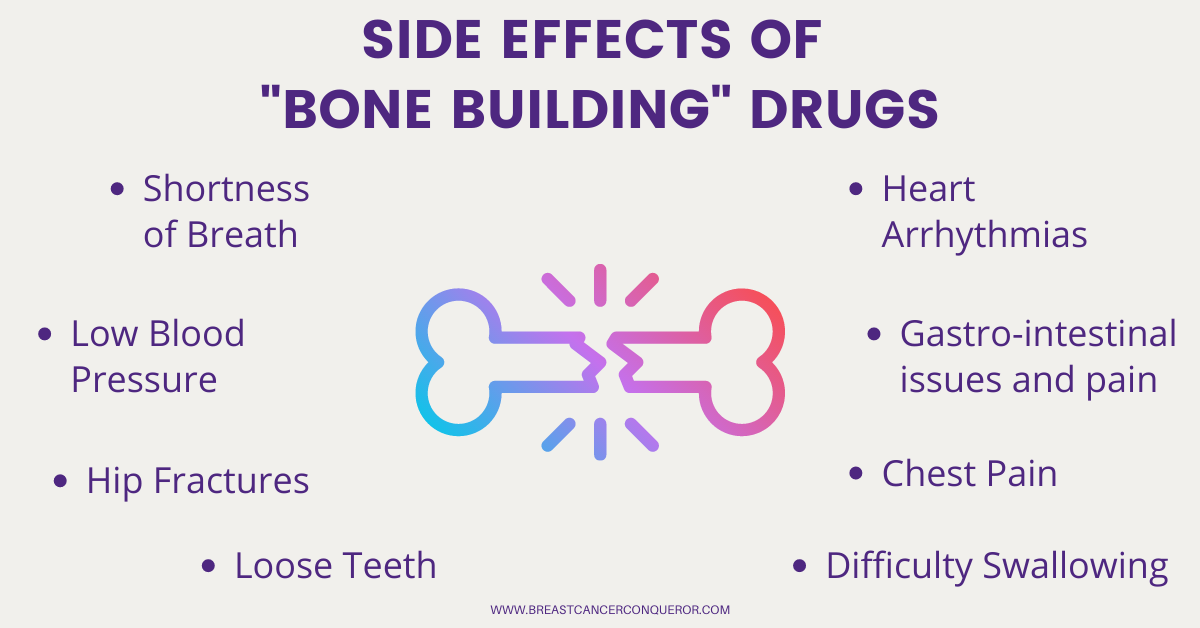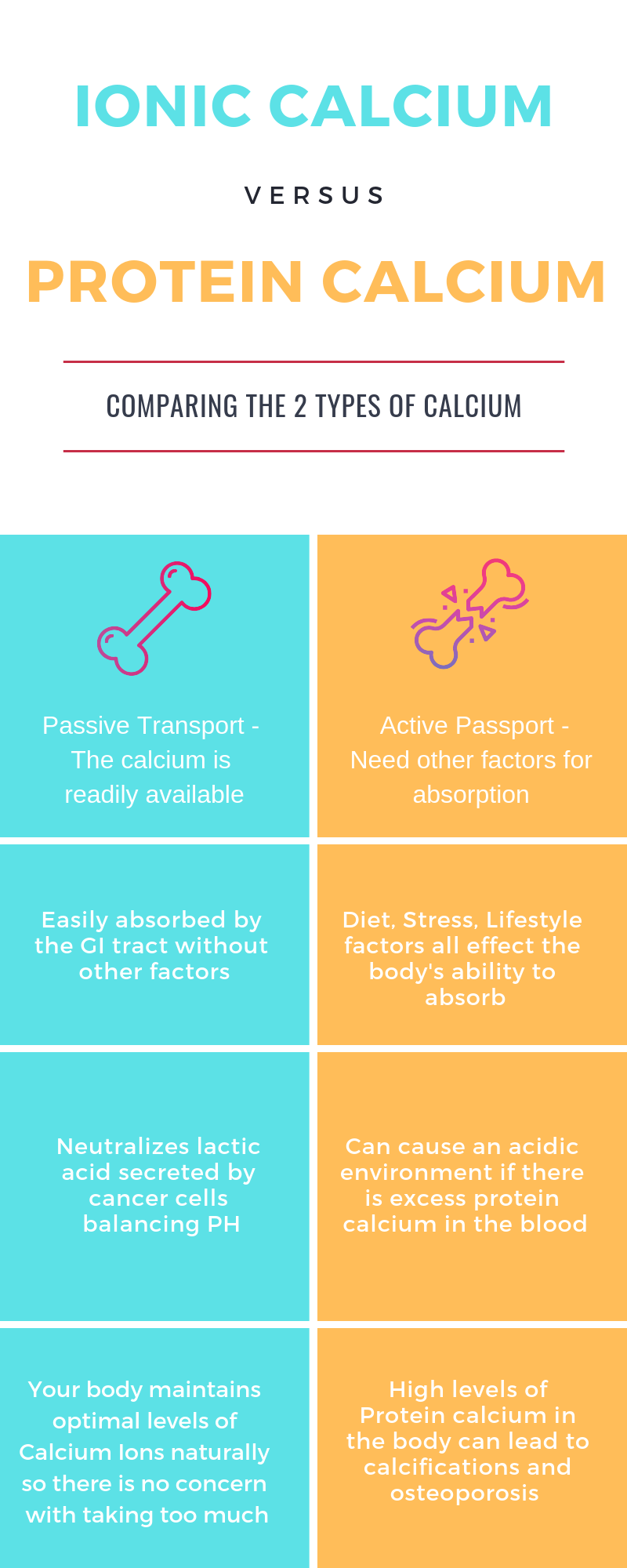
Calcium can be a very confusing topic for a lot of people, and for good reason. Not only is this essential mineral complex in its function, but it has also been the target of a lot of misinformation in the name of profits over people. My aim in this article is to provide you with the basics when it comes to calcium, how it relates to bone health, how it can protect against Breast Cancer, and, most importantly, how best you can get enough of the right kinds of it for your overall health.
Bone Density Vs. Bone Strength and the “Osteoporosis Epidemic”
Before I dive into our discussion about calcium in particular and how it plays a major role in our bone health, I think it is really important to get clear about definitions.
Remember when I said (in the intro above) that calcium has been a source of misconceptions in recent years? A lot of this has centered around confusion regarding bone density versus bone strength. This may seem like a small point, but when it comes to you making informed decisions about your health, it is really important to know the difference!
Bone is living tissue. That may seem like an obvious statement, but this means that our bones can be influenced by external factors. It also means that the signs of strong bones are bones that are flexible, bendable, and pliable. A good analogy is bamboo. Bamboo can bend, but it takes a lot for it to break! It is strong yet at the same time pliable.
Now switch to glass. Glass is actually very dense but it is also very brittle. If you drop it on the ground, it is going to break! It is dense but not very strong.
Conventional medicine has been negligent when it comes to healthy bones. Physicians have pushed bone density testing while ignoring bone strength. They have also promoted drugs such as Fosamax that promote bone density that have harsh side effects. As a result, they have created the epidemic called osteoporosis, and thousands of women have suffered as a result.
Some of the side effects of “bone-building” drugs like Fosamax include:
-shortness of breath
-low blood pressure
-chest pain
-heart arrhythmias
-difficulty swallowing
-heartburn
-gastro-intestinal issues and pain
-depression
-loose teeth
-hip fractures!
The list goes on from here to include many more symptoms. Perhaps the scariest side effect of all, however, is what having a higher bone density, in general, can do. According to multiple studies, women who have increased bone density have an increased risk of Breast Cancer as well. Sometimes that risk is up to 300%! On the flip side, a recent investigation conducted at St. Luke’s-Roosevelt Hospital Center in New York found that older women who had lower bone density have a decreased risk of Breast Cancer.

The Problem with Conventional Calcium Supplements
Conventional doctors and the popular culture also promote the use of typical calcium supplementation for women with “low bone density.” Major problems arise with this as well.
Over-supplementation with conventional calcium tablets is a major issue, as consumers buy into the fear factor when it comes to osteoporosis and osteopenia and over-consume these products. At the same time, the actual form that typical calcium tablets come in (called protein calcium) is not readily absorbed into the body as a stand-alone substance.
Calcium supplements labeled as “calcium carbonate,” “calcium hydroxide,” or “calcium citrate” fall into the category of protein-based calcium.
Protein calcium utilizes a complicated process called Active Transport to be absorbed into the body. This means that in order for this kind of calcium to go where it is needed and in the form it needs to be in to be utilized in the body, it needs other nutrients (as well as other mechanisms) to help it along.
Specifically, protein calcium needs vitamin D, vitamin K, certain enzymes, certain substances found in stomach acid, and the mechanisms in the body that are created through movement and exercise (as well as other factors) to convert the typical protein calcium tablet into what is called ionic calcium. Ionic calcium is the form of calcium that can be readily absorbed and used by the body.
Along the way, unabsorbed residue from the protein calcium tablet itself is left as toxins in the body. The result is a compounding of side effects.
New studies show that protein calcium over-supplementation can lead to major issues in the cardiovascular system, namely the calcification of arterial plaque and an increased risk of a heart attack.
How Can I Get the Calcium I Need?
All that being said, it is still a fact that a healthy body needs healthy, absorbable forms of calcium. It is also a fact that, according to statistics put forth by the National Institutes of Health, the vast majority of females in the United States over the age of four are deficient in this essential mineral! And deficiency is indeed linked to not only bone-related issues such as osteoporosis but also cardiovascular issues and dementia. There is also a link between low calcium levels and autoimmune conditions as well as calcium and cancer.
So how do you begin to get the calcium that you need into your body every day? You probably know what I am going to say! It starts with taking a look at the 7 Essentials.
Eating the typical Western (SAD) diet, not getting exercise, living and working in a toxic environment, and living under the hormones of stress all play a part in creating an environment of malabsorption in the body. And the end result of this malabsorption, as I mentioned above, will be calcium deposits inside your body that can begin to wreak havoc on your health, acidify internal pH, and raise your risk of disease, including heart disease and cancer.
Why Ionic Calcium Supplementation is a GameChanger
Eating a diet that is full of calcium-rich foods such as grass-fed, preferably raw, organic dairy and green, leafy vegetables, lowering stress, and getting adequate exercise every day can all play a part in raising calcium levels in a healthy way. So can making sure your vitamin D levels are sufficient as are vitamin K levels and other minerals that work in synergy with calcium, such as magnesium, selenium, and zinc.
For most of us on a healthy breast journey, however, we may need a little help through supplementation to get our calcium levels up. After all that I said about typical protein-based calcium supplementation, take heart! There is a form of calcium supplement that works!
Ionic calcium is highly absorbable and usable for the body since it contains calcium ions which are already converted into a state that will be accepted by the body. It relies on Passive Transport for absorption, which means that it does not need other cofactors to help it go where it needs to, such as the muscles and nerves. With ionic calcium, the small amount that does not get absorbed into the body system is simply passed out through detoxification and excretion.
Ionic calcium products are fairly new on the market, and the best ones will use a system of delivery called Anti-Orbital Ionic Calcium therapy. Anti-Orbital Ionic Calcium (or AIC) is “200 times more soluble” than food-based calcium or protein-based calcium supplements.
Calcium and the P53 Gene
There is another reason why supplementing with ionic calcium is important for your healthy breast journey in particular. The reason has to do with the P53 gene and how it relates to Breast Cancer.
Calcium has been shown to be cancer-protective in general in evidence-based research over the last decade. It has the ability to neutralize lactic acid and, according to a 2013 investigation by researchers at Saarland University in Homburg, Germany, increasing absorbable calcium levels can increase Natural Killer (NK) cell production as well.
The real “secret weapon” when it comes to ionic calcium, however, is how it is able to protect the P53 gene from mutation. P53 is itself a protector against cancer. This gene is a tumor suppressor. Its job is to produce proteins that help to repair damaged cells. It is also responsible for cancer cell apoptosis.
What’s more, research in Italy has shown that it is directly dependent on calcium for its survival. A 2011 study conducted in Japan found that low calcium levels can lead to P53 gene mutation. Roughly 50% of all people with cancers of all types have a P53 gene mutation. In addition, women with the P53 mutation tend to have the most aggressive kinds of Breast Cancer.
A Healthy Lifestyle and Ionic Calcium Supplementation is a Winning Combination
I hope that this article has shed some light and added some clarity to what can be a very confusing topic. When it comes right down to it, the simplest explanations (and answers) are usually the best. Protein calcium supplementation and pharmaceuticals like Fosamax are not in alignment with how nature intended us to be.
Take a moment to reflect on the state of your health right now and whatever symptoms you may be experiencing on your health journey. Get some expert advice and get the right kinds of tests to determine your own calcium levels, including testing your levels of ionic calcium as well!
Due to strict FDA guidelines, we are not able to advertise the name of the product. To learn more about AIC / Ionic Calcium you can go to their home page. To order this amazing product, please email Jennifer at store@breastcancerconqueror.com.

Do you think Jarrow Bone Up is good to take for calcium supplement? That is what I take. I take 2 capsules 3 times a day. I was curious what you thought about it. Thanks!
That product is hydroxyapatite -a calcium rock. We are not sure how absorbable that is. Dr V has told me that she personally would not take that type of calcium. There are others that may be better choices. I hope this helps!